17 Moments That Prove Kindness Is a Superpower in Casual Outfit

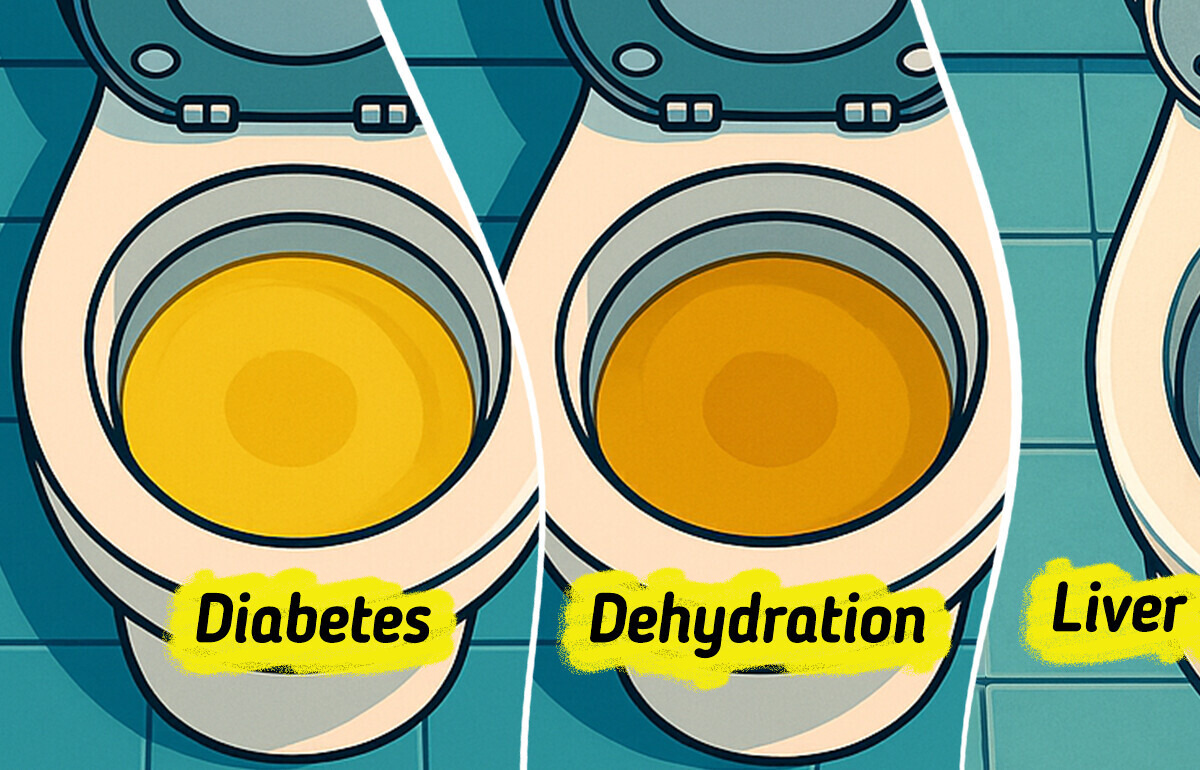
Your urine can actually offer surprising insights into your health. Everything from its color and smell to its texture can reflect your hydration status and even signal underlying health issues. It’s not only about frequency—each trip to the bathroom is your body’s way of communicating with you. Here’s how to understand what your urine might be saying about your well-being.
CONTENT IS PROVIDED FOR INFORMATIONAL PURPOSES ONLY AND IS NOT INTENDED AS A SUBSTITUTE FOR MEDICAL ADVICE. SEEK THE GUIDANCE OF YOUR DOCTOR REGARDING YOUR HEALTH AND MEDICAL CONDITIONS.

A sweet or fruity scent in your urine could be a sign that your body is trying to eliminate excess sugar through your pee, often an early indicator of high blood sugar or diabetes. This can happen when glucose builds up in the bloodstream and spills into the urine. In these cases, urine may range from pale to dark yellow, depending on your hydration levels, since the body loses more fluids while flushing out the extra sugar.
Noticing this kind of smell shouldn’t be overlooked. If it happens more than once, it’s wise to speak with a healthcare provider to check for potential conditions like diabetes or other underlying issues.
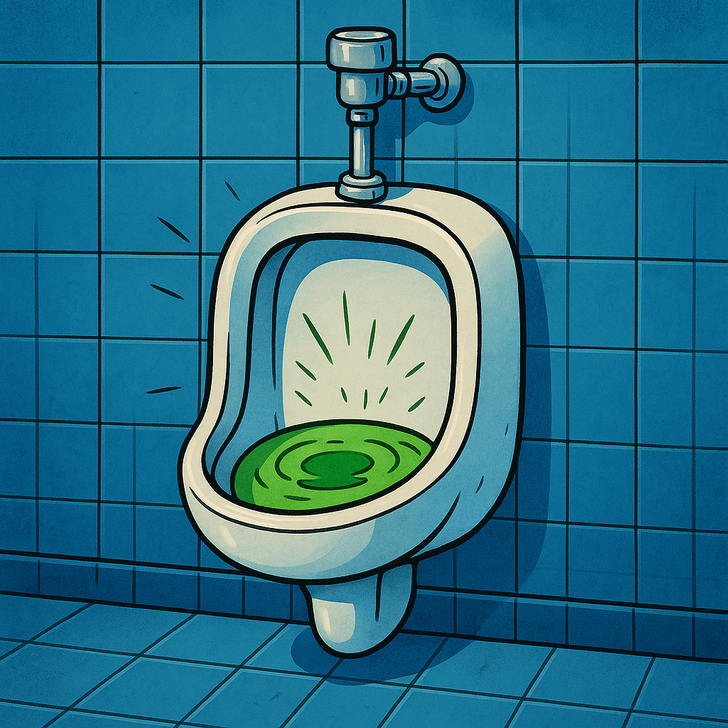
Seeing a blue or green tint in your urine can be surprising, but it’s usually linked to harmless causes like food dyes or certain medications. Drugs prescribed for conditions such as depression, acid reflux, pain, arthritis, or sleep disorders sometimes contain ingredients that can alter urine colour to a bluish or greenish hue.
Although this is generally nothing to worry about, there are rare cases, such as a genetic condition called blue diaper syndrome (BDS) in newborns, that can also lead to blue urine. If the discoloration appears without a clear reason or sticks around, it’s a good idea to check in with a healthcare provider to make sure there’s no underlying issue.
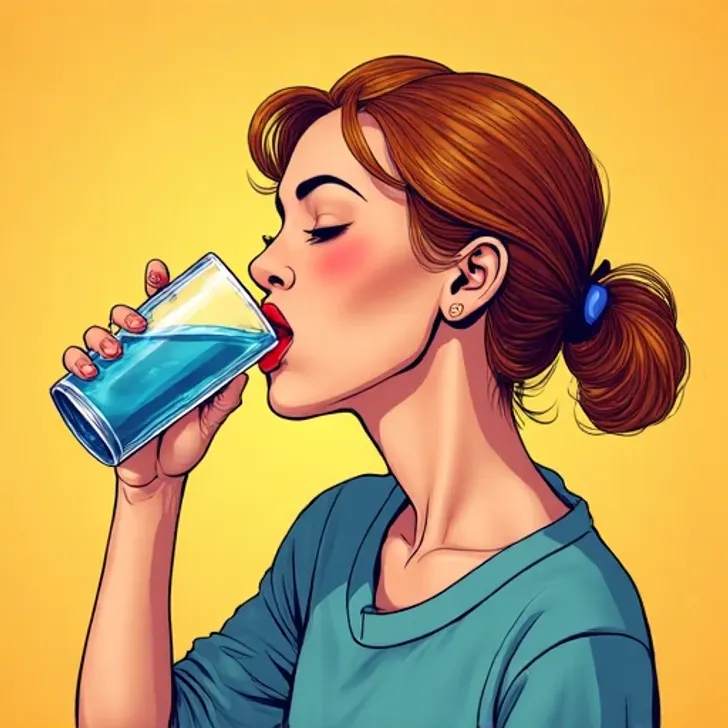
Noticing that your urine is darker than usual and you’re going to the bathroom less often may point to dehydration. Other signs like tiredness, nausea, or feeling mentally foggy can also accompany it. A medical professional can test how concentrated your urine is to determine if you’re properly hydrated.
While dehydration is a common cause of orange urine and usually improves with increased water intake, orange urine paired with pale-coloured stool could signal a bile duct issue. In that case, it’s important to consult a doctor for further evaluation.
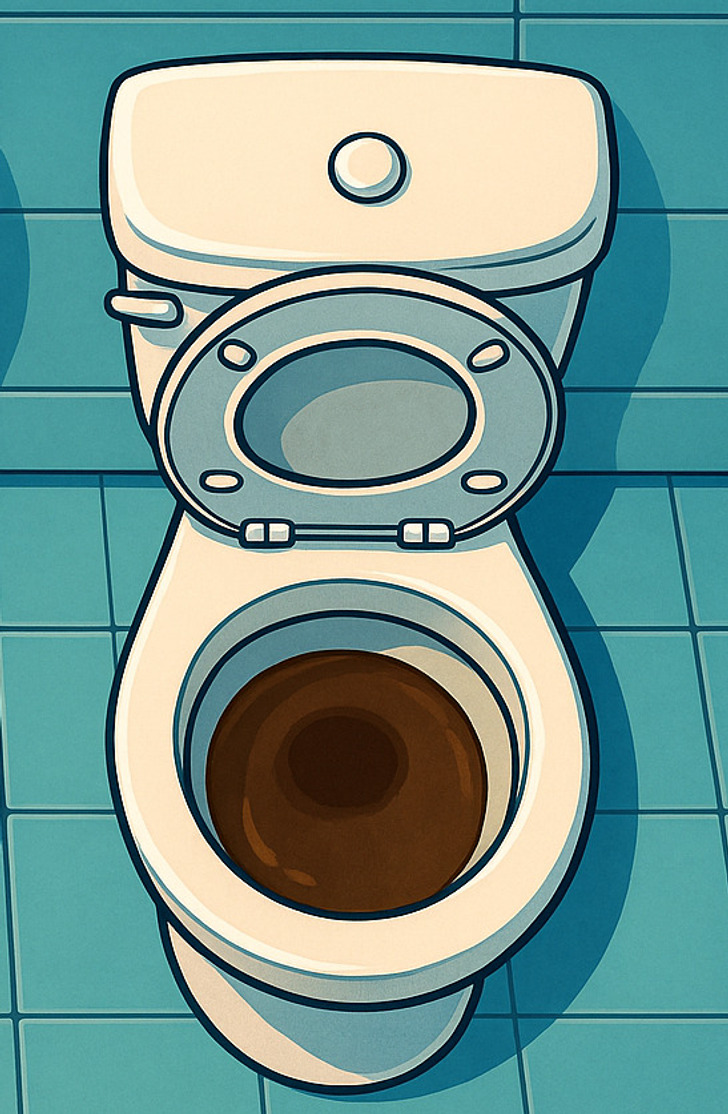
Urine that appears dark brown is often a sign of dehydration, but it can also be caused by certain foods like fava beans or rhubarb, as well as medications such as chloroquine or metronidazole. In some cases, it may be linked to medical conditions including liver disorders, porphyria, or rhabdomyolysis—a condition involving muscle breakdown.
Strenuous physical activity, especially long-distance running, can lead to a temporary condition called exertional hematuria, which causes dark urine and usually improves with rest. If the color change continues or is paired with other symptoms, it’s best to speak with a healthcare provider to rule out any serious health concerns.
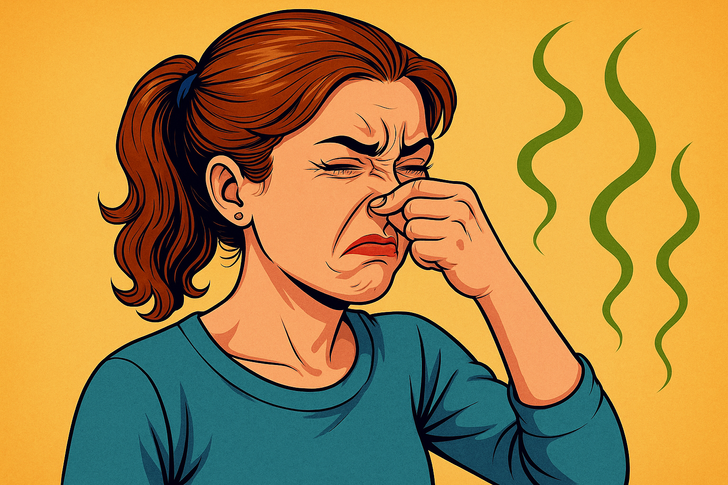
A sharp ammonia-like odour in your urine may be a sign that you’re dehydrated or could point to a urinary tract infection (UTI). When bacteria infect the urinary tract, they can cause urine to smell unusually strong. Other possible signs of a UTI include cloudy or pink-tinged urine, a burning sensation while peeing, the urge to urinate often, fever, or even confusion, particularly in older adults.
UTIs are fairly common, especially among women and seniors. If you experience several of these symptoms together, it’s important to consult a healthcare provider to prevent the infection from getting worse.
Very light or completely clear urine typically indicates that you’re drinking a lot of water, possibly more than your body actually needs. While good hydration is essential, overdoing it can dilute important electrolytes, which help maintain your body’s balance.
Occasionally, seeing clear urine isn’t a problem, but if it happens frequently and you’re not intentionally consuming large amounts of water, it could signal something more serious, such as liver conditions like cirrhosis or hepatitis. If this continues without a clear cause, it’s wise to check in with a healthcare professional.
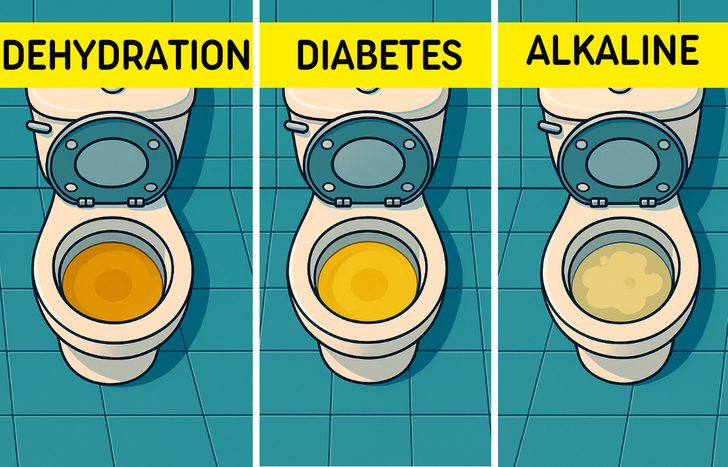
Urine that looks hazy or milky rather than clear and pale yellow is often linked to increased alkalinity in the body. This is usually not a cause for concern and can often be improved by staying hydrated and following a balanced diet.
However, if the cloudiness happens regularly or persists over time, it may point to an underlying health issue. In such cases, it’s a good idea to seek medical advice to determine the cause and get appropriate care.
Your urine can reveal a lot about your health, from hydration levels to potential medical issues. Noticing changes in colour, smell, or frequency is your body’s way of signalling that something may need attention. While some shifts are harmless, it’s important to not overlook signals and to speak to a healthcare professional if you’re worried.
Bonus tip: Don’t ignore the urge to go. Holding in your pee can have negative effects on your bladder and overall health. Learn more about why it’s best not to delay bathroom breaks in this article.











